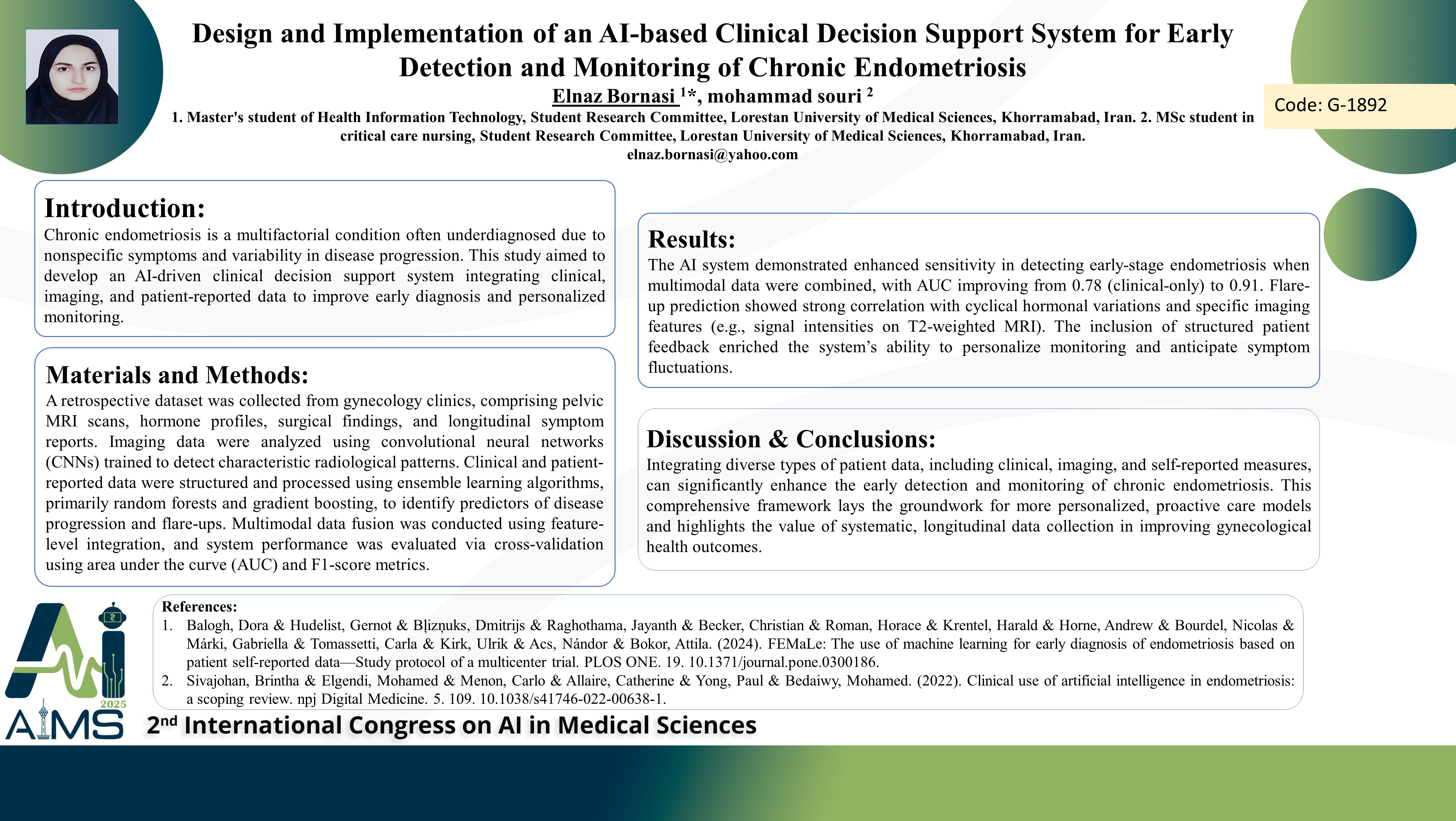Design and Implementation of an AI-based Clinical Decision Support System for Early Detection and Monitoring of Chronic Endometriosis
Code: G-1892
Authors: Elnaz Bornasi * ℗, Mohammad Souri
Schedule: Not Scheduled!
Tag: Clinical Decision Support System
Download: Download Poster
Abstract:
Abstract
Background and aims: Chronic endometriosis is a multifactorial condition often underdiagnosed due to nonspecific symptoms and variability in disease progression. This study aimed to develop an AI-driven clinical decision support system integrating clinical, imaging, and patient-reported data to improve early diagnosis and personalized monitoring. Method: A retrospective dataset was collected from gynecology clinics, comprising pelvic MRI scans, hormone profiles, surgical findings, and longitudinal symptom reports. Imaging data were analyzed using convolutional neural networks (CNNs) trained to detect characteristic radiological patterns. Clinical and patient-reported data were structured and processed using ensemble learning algorithms, primarily random forests and gradient boosting, to identify predictors of disease progression and flare-ups. Multimodal data fusion was conducted using feature-level integration, and system performance was evaluated via cross-validation using area under the curve (AUC) and F1-score metrics. Results: The AI system demonstrated enhanced sensitivity in detecting early-stage endometriosis when multimodal data were combined, with AUC improving from 0.78 (clinical-only) to 0.91. Flare-up prediction showed strong correlation with cyclical hormonal variations and specific imaging features (e.g., signal intensities on T2-weighted MRI). The inclusion of structured patient feedback enriched the system’s ability to personalize monitoring and anticipate symptom fluctuations. Conclusion: Integrating diverse types of patient data, including clinical, imaging, and self-reported measures, can significantly enhance the early detection and monitoring of chronic endometriosis. This comprehensive framework lays the groundwork for more personalized, proactive care models and highlights the value of systematic, longitudinal data collection in improving gynecological health outcomes.
Keywords
Endometriosis, Clinical Decision Support System, Dianosis
